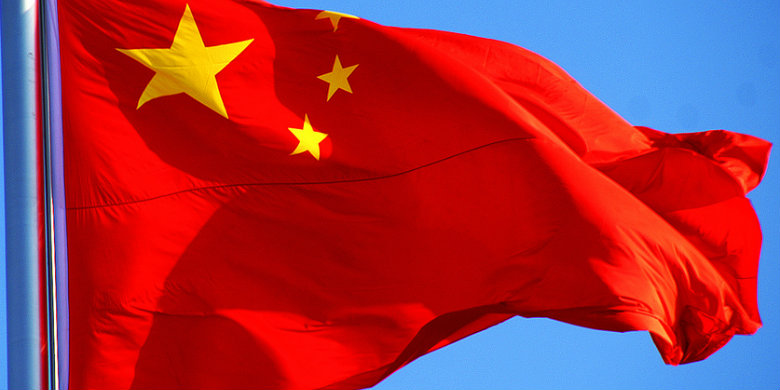
I veckans internationella krönika vänder vi återigen blickarna mot den fascinerande utvecklingen i Kina, och vi gör det med en något längre men mycket läsvärd text på engelska av Börje Ljunggren.
China and its ruling Communist Party are facing mounting problems, and institutions are at the center of the drama. It is with that thought in mind that I read Daron Acemoglu and James Robinson’s much-praised book, Why Nations Fail: The Origins of Power, Prosperity and Poverty (2012), which addresses profound questions about economic and political institutions. It is not a book about China, but given China’s dramatic development during the last 30 years, I looked for what they had to say about China.
China is, however, a rather peripheral issue in their book. They devote just a dozen pages out of close to 500 to China, and they do it in a surprisingly anecdotal way. A & R choose, without much evidence, to describe China’s dramatic development as simply ”an example of growth under extractive political institutions,” and ”likely to come to an end, particularly once China reached the standard of living level of a middle-income country.”
The strength of the book is their ambition to look at economic as well as political institutions; the weakness is their tendency to try to fit everything into ”one size fits all” reasoning.
There are a great variety of views among scholars on China, but still broad agreement that more of the same cannot succeed. Among the most upbeat of the scholars is Justin Jifu Lin, until recently chief economist at the World Bank and now back in China. According to his 2011 volume, Demystifying the Chinese Economy, ”China has great potential to continue the current dynamic growth for another two decades or more.” Lin bases his argument on the theory of the potential advantages of backwardness and the fact that when Japan, Taiwan and South Korea were at China’s current per capita income level they grew at such a pace for two decades. The main weakness of Lin’s analysis is that the scope is too narrow, and does not consider the crucial political economy of the party state.
The system has, no doubt, shown remarkable staying power, and among political scientists, many have adhered to the ”authoritarian resilience” or ”adaptive resilience” school. As recently as last year, one of the world’s leading scholars on China, Harvard’s Elisabeth Perry and her German colleague Sebastian Heilmann, even argued that the Chinese system has become more, rather than less resilient (see Mao’s Invisible Hand – The Political Foundations of Adaptive Governance). In my view, they do not sufficiently take into account how the system has changed over the last decade as the elite has become increasingly self-enriching and society has changed beyond party control with civil society online and offline becoming an increasingly powerful and unruly factor.
Carl E. Walter and Fraser J. T. Howie, both with some 20 years of experience working in the Chinese financial sector, argue in their book, Red Capitalism: The Fragile Financial Foundations of China’s Extraordinary Rise (2011), that the Chinese party-state is increasingly dominated by ”special interest groups,” foremost by a so-called National Team, and that this is a ”game-changer in China’s political economy.” In their analysis, Walter and Howie seem to be getting at the raw nerves of power.
Nicholas Lardy of the Peterson Institute, in his book Sustaining China’s Economic Growth after the Financial Crisis (2012), is less alarmist than Walter and Howie, but he expresses deep concern over the lack of necessary reforms and, in particular, about the effects of the vested interest-driven policy of financial repression.
China is suffering from a huge reform deficit. In addition to the causes described above, the current state of affairs is due to the Communist Party’s unwillingness to recognize what is driving the Chinese economy.
A question of central importance becomes whether the Communist Party, in spite of its vested interests, will have the capacity to build on these sources and the foresight to develop credible institutions in support of entrepreneurship and innovation. There is huge potential in the combination of China’s several million entrepreneurs, the six million graduates that annually come out of China’s universities and a Chinese innovation system that recognizes the global interdependence of the Chinese production system. It would be fatal not to recognize the implications for global chains of production.
What do the new leaders want to achieve, in addition to maintaining power? Will the new leadership have the ability to move beyond muddling through? Will they be able to put China on a new reform path focused on institutional development, even challenging entrenched elites? Fighting corruption has been on top of Hu Jintao’s agenda – at least in rhetoric – ever since he came to power 10 years ago, but it is a more serious problem today than when he took office. The result is a huge accumulation of corruption over time. In his first speech as Party Secretary, Xi Jinping made the fight against corruption his top priority and a few concrete cases have born witness. It remains to be seen whether the efforts will be sustained, and whether the methods used will be those of the Party-state or bring China closer to being a country ruled by law.
No Communist party in history has been able to clean up from within, but nor has any Communist party been in power while a country has undergone the development that China has achieved in the last 30 years. What makes the Chinese drama fascinating is the way society as such is changing. The Party is, in a sense, a victim of its own success. In spite of its immense security apparatus and censorship system, the Party is facing steadily increasing challenges, which cannot be resolved through increased repression. An online civil society, with more than 600 million Internet users and more than 300 million micro bloggers on sites such as Weibo, is exposing abuses of power like never before. Most challenging for the Party is the growing connectivity between what happens offline and online. Given that the number of ”mass incidents” during the last few years is estimated to have reached 180,000, this connectivity constitutes a threat to the Party’s core principle of the mono-organizational nature of the party state.
China is entering an era of social dynamics that will sorely test the Party and its leadership. The Party will be forced to retrench and China’s new leaders will have no choice but to resort to more deliberative forms of authoritarianism, or crumble. They have to perform a balancing act on a slippery slope, without any known script to follow. There is every reason to wish the comrades on the new Standing Committee good luck in undertaking such creative destruction.
Börje Ljunggren is former Swedish Ambassador to China and Vietnam, coordinator of the Stockholm China Forum, and author of Kina – vår tids drama (China – the Drama of our Time).
Fotnot: En längre version av texten, som ursprungligen är en omfattande bokrecension av en rad böcker om Kina, har publicerats i ”Global Asia. A journal of the East Asia Foundation”. Dagens Arena publicerar en kortare version med benäget tillstånd av författaren.
Börje Ljunggren är diplomat, var ambassadör i Peking 2002 – 2006 och har skrivit boken ”Kina – vår tids drama”.
Följ Dagens Arena på Facebook och Twitter, och prenumerera på vårt nyhetsbrev för att ta del av granskande journalistik, nyheter, opinion och fördjupning.

































